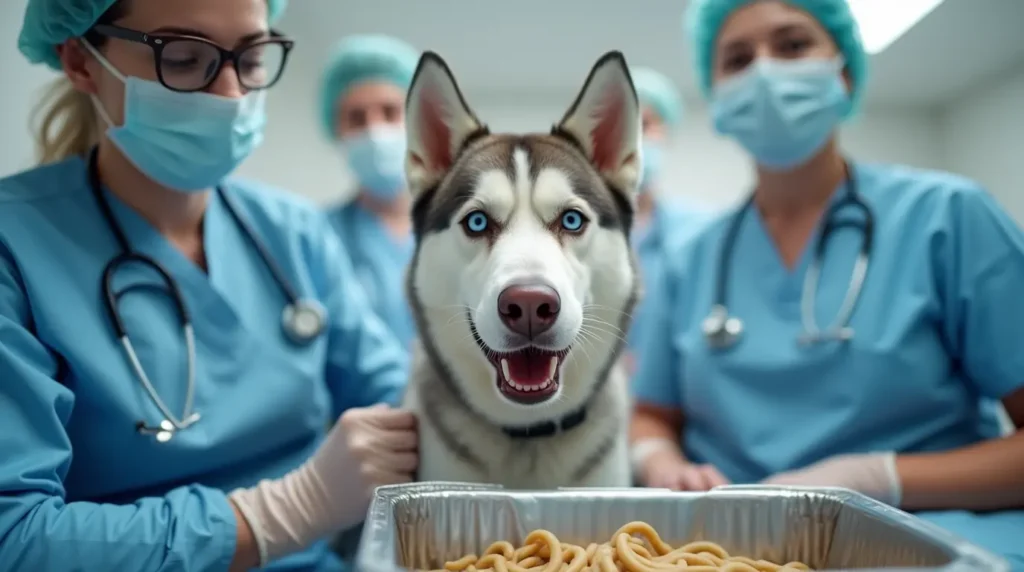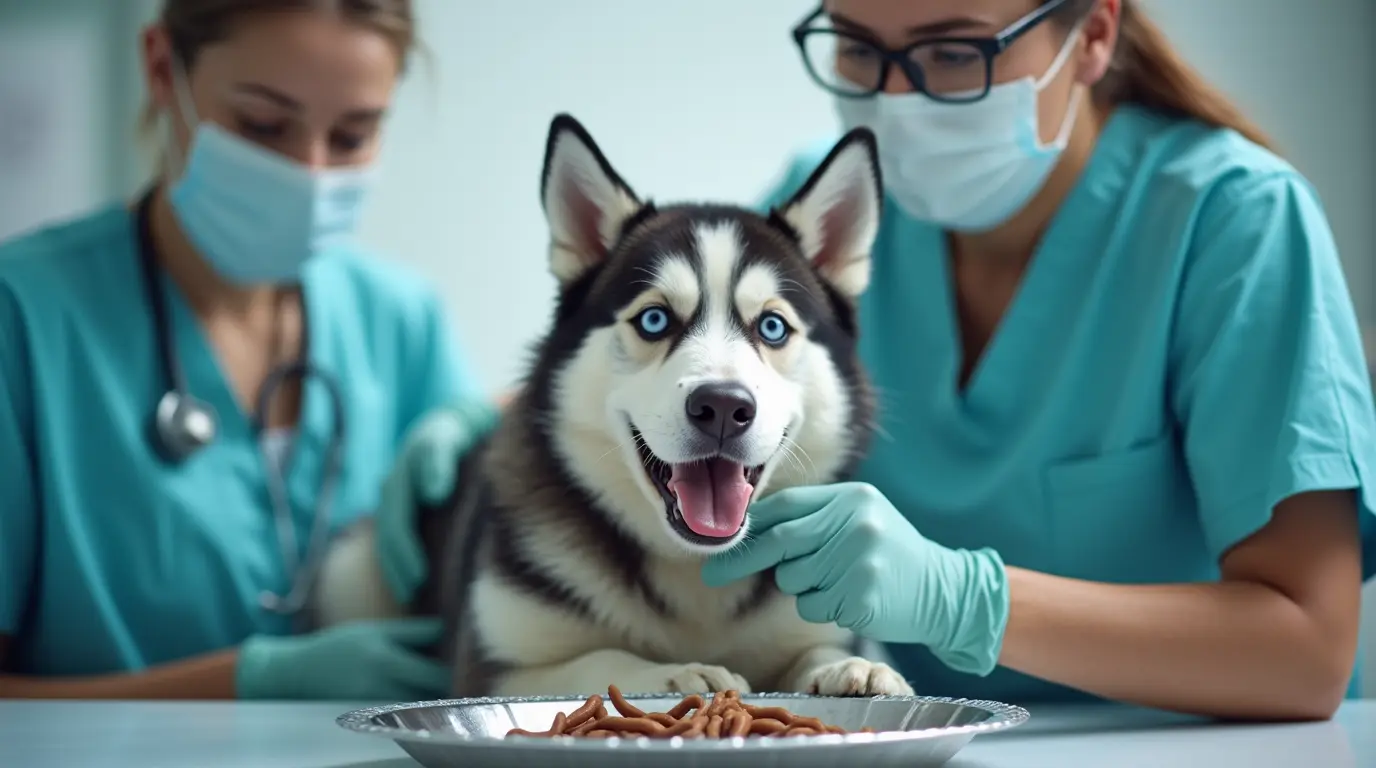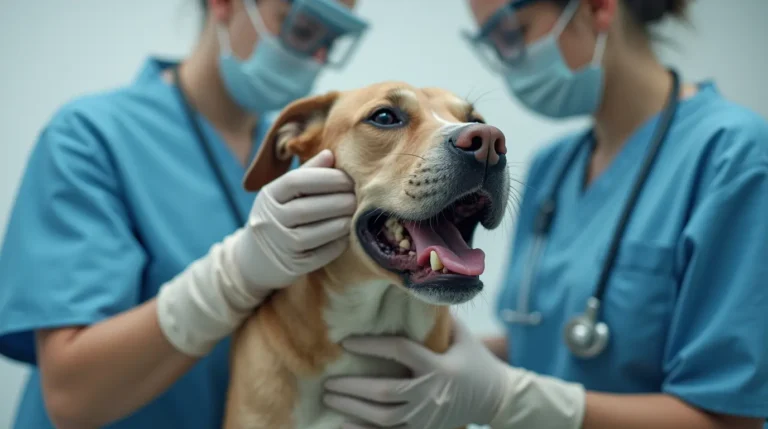Protect your furry friend from Intestinal Worms in Dogs! Discover 5 critical signs of dog worm infestations, expert treatment options, and prevention strategies.

Table of Contents
Dog owners, beware: intestinal worms are a silent threat that can compromise your beloved pet’s health and well-being. These parasitic invaders can cause serious complications if left untreated, making early detection and proper management crucial for your dog’s overall health. In this comprehensive guide, we’ll explore the most common types of intestinal worms in dogs, their telltale signs, and the most effective treatment options to keep your canine companion happy and healthy.
Understanding Intestinal Worms in Dogs
Types of Intestinal Worms
Dogs can be affected by several types of intestinal worms, each with unique characteristics:
- Roundworms
- Most common intestinal parasite in dogs
- Can grow 3-5 inches long
- Particularly dangerous for puppies
- Hookworms
- Small, blood-sucking parasites
- Can cause severe anemia
- Potentially fatal in young dogs
- Whipworms
- Inhabit the large intestine
- Cause chronic digestive issues
- Difficult to detect and treat
- Tapeworms
- Transmitted through fleas
- Visible in dog’s feces or around the anal area
- Can grow several inches long
5 Critical Signs of Intestinal Worm Infestation
1. Visible Worm Segments or Eggs
Red Flags:
- White, rice-like segments in feces
- Visible worms in stool or around the dog’s anus
- Sudden appearance of small, moving organisms
2. Dramatic Weight Loss and Poor Nutrition
Warning Indicators:
- Unexplained weight loss despite normal eating
- Pot-bellied appearance
- Dull, lackluster coat
- Decreased muscle mass
3. Digestive Disturbances
Symptoms to Watch:
- Persistent diarrhea
- Bloody or mucus-covered stools
- Vomiting
- Decreased appetite
- Abdominal pain or bloating
4. Changes in Energy Levels
Key Observations:
- Unusual lethargy
- Reduced playfulness
- Weakness or fatigue
- Lack of interest in activities
5. Visible Physical Changes
Physical Manifestations:
- Dull, dry coat
- Significant weight fluctuations
- Pale gums (indicating potential anemia)
- Rough, unhealthy-looking fur
Diagnostic Procedures
Veterinary Examination
- Comprehensive fecal examination
- Blood tests
- Physical health assessment
- Microscopic parasite identification
Treatment Options
Veterinarian-Prescribed Medications
- Broad-spectrum dewormers
- Targeted antiparasitic medications
- Prescription strength treatments
Supportive Care
- Nutritional supplements
- Hydration management
- Follow-up health monitoring
Prevention Strategies
Proactive Measures
- Regular veterinary check-ups
- Monthly deworming treatments
- Good hygiene practices
- Clean living environment
- Flea and tick prevention
Recommended Pet Products on Amazon
Top Recommended Products
- Interceptor Plus Chewable Tablets
- Sentinel Spectrum Chewable Tablets
- Panacur C Canine Dewormer
- ProHeart 6 Monthly Heartworm Prevention
Intestinal Worms in Dogs (FAQ)
Q1: How often should I deworm my dog? A: Puppies should be dewormed every 2 weeks until 12 weeks old, then monthly until 6 months. Adult dogs should be dewormed at least 2-4 times annually.
Q2: Can humans contract intestinal worms from dogs? A: Yes, some intestinal worms are zoonotic and can be transmitted to humans. Proper hygiene and regular pet deworming are essential.
Q3: Are natural remedies effective against intestinal worms? A: While some natural remedies might help, veterinarian-prescribed medications remain the most reliable treatment.
Conclusion
Protecting your dog from intestinal worms in dogs requires vigilance, regular veterinary care, and proactive prevention. By understanding the signs, seeking prompt treatment, and maintaining a clean environment, you can safeguard your furry friend’s health and happiness.
Share Your Experience Have you dealt with intestinal worms in your dog? Share your story and insights in the comments below! Your experience could help other pet owners protect their beloved companions.
Disclaimer: This article is for informational purposes and should not replace professional veterinary advice. Always consult with a veterinarian for personalized pet health recommendations.
Explore More Pet Care Tips Visit BlithePet for expert pet care guides and comprehensive resources to keep your furry friend healthy and happy!





